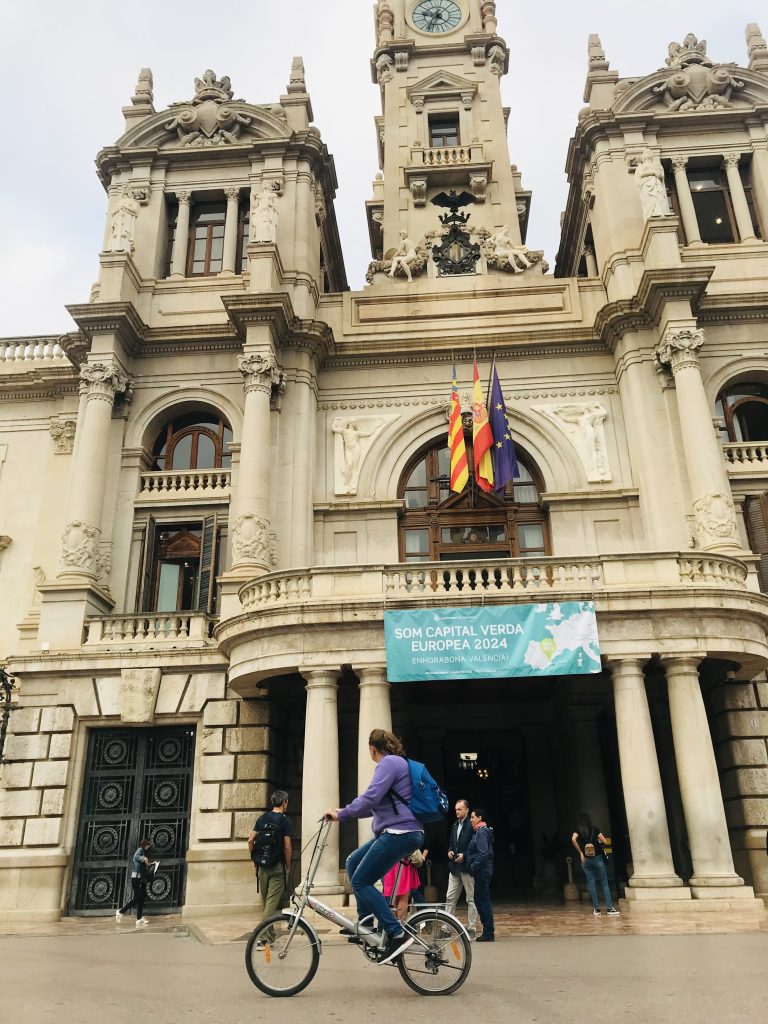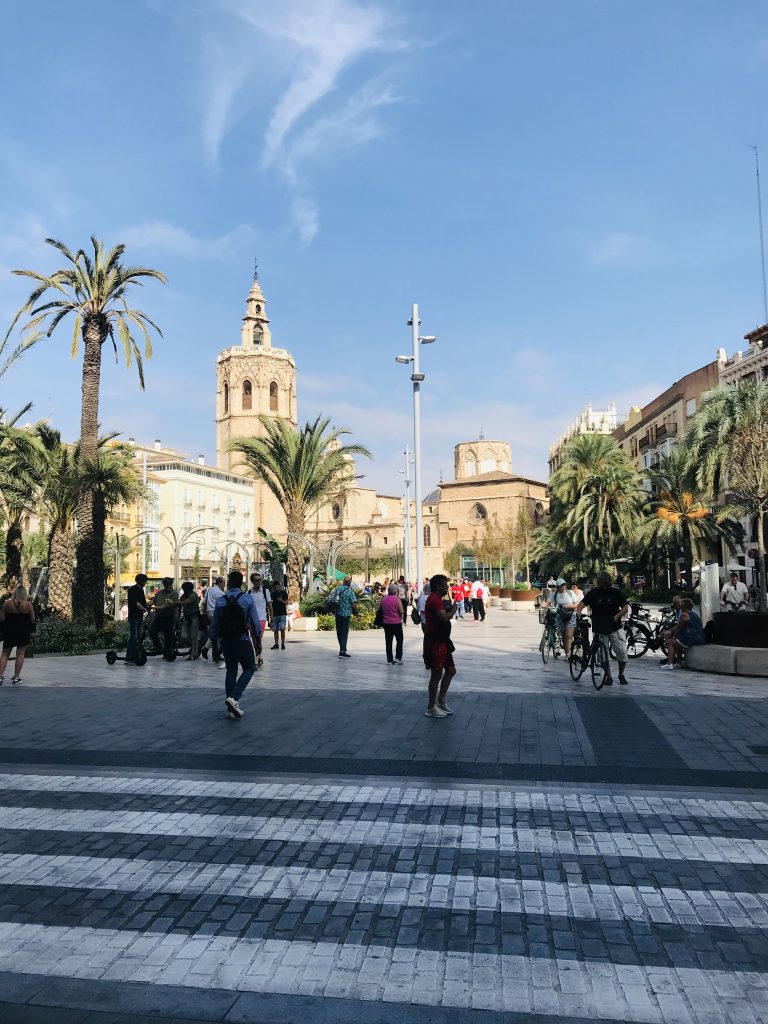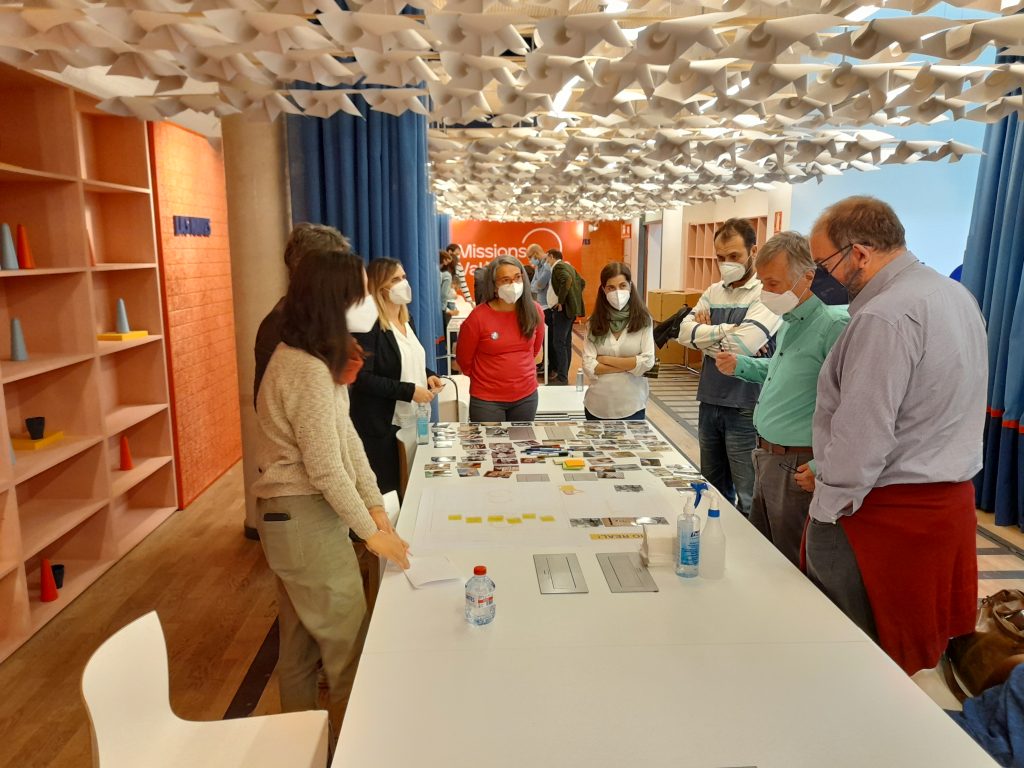One city, one vision: the collective effort behind Valencia’s mission
The recognition of Valencia as European Green Capital 2024 acknowledges years of efforts mobilising everyone around a common vision for the city’s future
2024 kicked off Valencia’s year to shine in the spotlight as European’s Green Capital. Valencia is also one of the EU’s 112 Mission cities striving for climate neutrality by 2030. Back in October, they were among the first to be awarded the Mission label from the European Commission, acknowledging the city’s ambition and coherent plan to achieve climate neutrality in the next few years.
These two achievements didn’t magically happen from one day to the next. For years, Valencia has been working on projects bringing the city towards a greener future: from developing sustainable mobility and food systems, rolling out a green corridor throughout the city to creating energy communities, deploying solar panels and innovative technology.
However, Valencia owes its current position not so much to the multiplication of forward-looking projects as to the city’s ability to concentrate and gather all these forces around one common journey.


How did they do it?
So, let’s rewind a bit, to see how they managed to unhook Mission and Green Capital title…
At the heart of Valencia’s recent achievements are two things: first, a clearly defined vision and pathway of how to get there; second, successful and widespread mobilisation around this vision, both in its definition and implementation. Both these things took several years to build.
It started in 2019, when the city launched a wide range of processes that laid the groundwork for the collaborative approach driving its current mission. Their participation in the EU-funded project, TOMORROW, from 2019 to 2022, helped them set up a cross-sectoral organisational structure. The aim was to define a collective long-term strategy, with strong political support. The more Valencia was able to engage people and key stakeholders into their planning, the more Valencia’s ambitions grew. Three years of collaborative work culminated into Valencia’s Fair and Inclusive Energy Transition Strategy, their roadmap to climate neutrality by 2030.
What, exactly, did they do?
Since we’re here to better understand the local governance needed to deliver tomorrow’s cities, let’s get a bit into the nitty-gritty of these collective processes…
Valencia’s transformative journey started with the establishment of the City Council Energy Commission in 2019, a collaborative initiative involving various city departments and coordinated by the city’s energy agency Valencia Clima i Energia and the Department of Climate Emergency. Their main aim was to work on the city’s Sustainable Energy and Action Plan (SECAP). The process evolved with stakeholder mapping, leading to the formation of the Energy Transition Working Group organised around Roundtables, engaging 22 entities from the public and private sectors, academia, civil society, and media. These Rountables gave rise to Demo Projects Commissions, focusing on specific initiatives with diverse entities collaborating.

When the EU’s Mission for 100 climate-neutral cities was launched, Valencia was able to use this same foundation to prepare their application. Through informal and formal cross-sectoral working groups, they upgraded the strategy they were already working on to align it with the Mission. They then leveraged the Mission to broaden the engagement around the city’s 2030 vision, carrying out strategic marketing and communication campaigns. They also created an Alliance for the Climate Mission, involving local businesses, influential personalities, Mission ambassadors, and citizen pledges. Through citizen initiatives and forums, they gathered feedback on their 2030 vision and strategy.
The Fair and Inclusive Energy Transition Strategy, officially approved by the City Council in September 2022, integrated six projects that had emerged from the initial Roundtables. These projects span from promoting energy communities to opening more energy offices and creating a carbon neutral district, among others. Details on the strategy’s projects, tasks and financing were then elaborated in the city’s Climate Contract, developed as part of the Mission.
Such a comprehensive and collaborative organisational structure was crucial for Valencia to effectively leverage all the opportunities and resources coming from different levels of government, to design a strong and coherent transition strategy across all documents.
« Our main challenge was to coordinate and merge different initiatives and projects coming from the European Union or national government, with similar objectives, to maintain a sense of coherence, exploit synergies and maximise the impacts achieved with limited. We were able to overcome this challenge by being flexible about the process and open to adapting the plan to new initiatives; by negotiating with the different municipal departments leading different initiatives; by allocating enough human resources for the coordination of initiatives; and by establishing informal and formal working teams for coordination (such as the Climate Mission Team), and having the support of the Mayor’s Office through the Urban Agenda Coordinator of the Municipality. »
Alejandro Gómez Gil, Valencia Clima i Energia
And… now what?
Going forward, how will Valencia maintain and reach its high ambitions?
The work on Valencia’s Climate City Contract is coordinated, naturally, within the same structure that was set up to develop the roadmap back in 2019. The cross-sectoral committee set up to prepare the Mission continue to meet biweekly on “Mission days”, now diving deep into topics such as climate finance, to make their vision a reality.
In the end, becoming Green Capital and a Mission City are not end goals in themselves, but only a step in the challenging journey Valencia is on. While they validate and propel this transformative journey, they are merely one of the many initiatives helping the city to shape a future that will take years to build.
What Valencia has shown us is that to reach this important step in the ladder, you must start with a deep organisational restructuring. And this begins at the core of your city’s administration then extending outward to reach as wide as possible.

